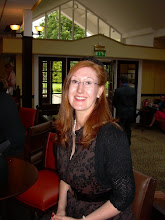
The excellent Birmingham Book Festival commissioned the philosopher A C Grayling to give a lecture at the festival this year, entitled "The Good Reader and the World". This is in part a tribute to the National Year of Reading, which encourages the promotion of literacy for children and enjoyment of reading for everyone. In line with this, Professor Grayling began his lecture by giving a detailed summary of the history of reading, from the earliest known literate communities in Ancient Egypt through to the reading explosion of the autodidacts of the nineteenth century. Grayling particularly emphasised the impacts of the early printing presses, particularly their significance not only in rising literacy, but in the fact that literacy was therefore no longer largely exclusive to the church and the ruling classes. The subversiveness of access to religious texts, for example, is not something we think much of these days, but it meant that more people were able to challenge the church on the basis of their own reading - literacy is pwer, and as it spreads power is disseminated. During the Renaissance the importance of the classical literature of Ovid, Cicero, Virgil etc allowed "insight into the wider mind of Europe", broadening the views of those who could read them (which was of course still a small minority). By the nineteenth century, however, books were cheaper and more available, and more people could read - especially essays and poetry - and many of the working-class were able to educate themselves through their reading. This is hugely significant for social development of a country as a whole, Grayling pointed out, because those who read are thinking more; for example, revolutionaries in the seventeenth century such as the Levellers and the New Model Army were literate, which is hardly a coincidence.

Grayling emphasised the different modes of reading - passive reading, for plot alone, such as one might with a beach novel, and intensive reading, where one puts thought and consideration into the book, permitting a dialogue between reader and author, disagreeing with it, coming to one's own conclusions. This, he suggests, is the way to be fulfilled in one's reading, and it has a transformative effect on the reader. Some books, of course, invite purely passive reading, while others engage the reader sometimes against their will, and it those that are treasures.
Modern British education fosters "literacy" and "numeracy" in the quest to turn citizens into "good foot-soldiers in the economic battle", but as Grayling says, Aristotle said that the point of education was to make "noble use of our leisure". Education isn't about getting a job; it's about one's life and what one does with it, and permits one to be a "responsible contributor to public conversation", and indeed a responsible voter, too. Looking at the future of reading, Grayling is optimistic, suggesting that there will always be readers, and always people who do find necessary stimulation in books, even if the nature of "books" as we know them is overtaken by technology. The content of books "will never be far from the centre of a genuinely civilised society".











No comments:
Post a Comment